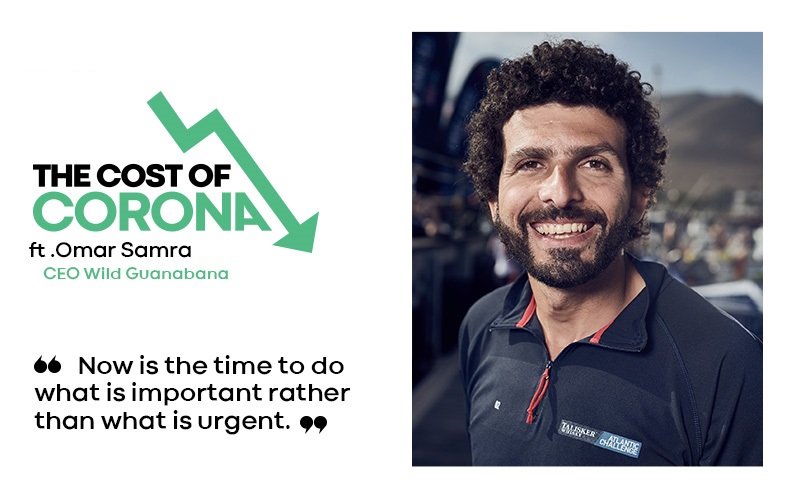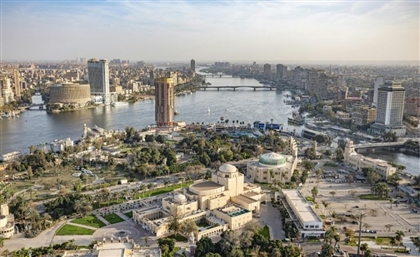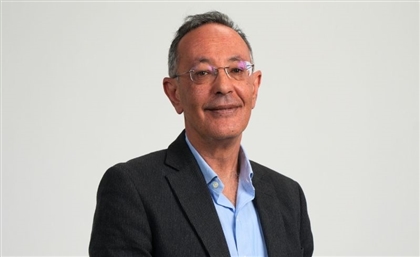THE COST OF CORONA ft. Omar Samra, CEO Wild Guanabana
“If ever there was time for people to believe in the idea of impermanence, this is it.” Famed Egyptian explorer and entrepreneur Omar Samra opens up about the world closing down…

As part of our series #TheCostofCorona, MO4Network Co-founder and CEO Amy Mowafi lets us into a recent conversation she had with Omar Samra, founder and CEO of adventure travel company Wild Guanabana. As the first Egyptian to summit the world’s seven highest peaks, traverse both poles and survive a row across the Atlantic, Samra is now having to face his biggest challenge yet… Ensuring the survival of a business and personal brand built on exploration, escape and the great outdoors when the ‘outdoors’ is now quite literally closed for business.
This conversation took place on Thursday March 26th 2020 and parts of it have been edited for brevity and clarity…
Amy: Soooo, Omar, how are YOU feeling?
Omar: You know, if there was ever a time for people to believe in the idea of impermanence this is it; nothing stays the same, everything is always changing. I’ve been reflecting a lot on the idea of stillness. I think I already knew that my life was relatively unsustainable in terms of how much I am doing all the time. As a founder of four companies and a children’s charity, it’s a lot. Look, at first I really tried hard to fight what was happening. Every two days I would come up with a different strategy as to how we would navigate this and finally, I just realised this is bigger than all of us.
I had a couple of days, maybe more, when I was really down and basically, I spent hours just staring at the wall and feeling really sorry for myself. You spend a decade building something and then everything comes down in a few days. It’s insane. It makes you feel extremely vulnerable to life in general. But I think you have to hit rock bottom and then kind of let the sorrow wash over you. You’ve got to get through that phase of denial where you think you have control over the situation and then it’s time to build yourself back up. So I woke up this morning feeling a little more positive and like I am ready to fight this thing. Of course, fighting may also mean just slowing down and relaxing as well. ‘Fighting it’ means getting into the right mental state and being prepared for uncertainty. Then you have to try and look at the good side of this. For a lot of us, our lives have completely slowed down – unless you’re working at Dettol or sell sanitisers. Basically, you just have to take this time to kind of reflect and redesign your life and think about what your life could look like when eventually everything comes back.
Amy: Life… but not as we know it?
Omar: Well actually your life in the future could very quickly end up looking exactly as it was before this, which for some people might be brilliant but for me personally, I think I could do better. So now is the time to focus on connecting better with the people you care about, reaching out to people who you haven’t spoken to in a while, taking the time to do what is important rather than what is urgent.
Amy: I think it’s interesting what you’re saying about one of the actions you might need to take right now is to slow down; that this shift of gears could – for many people – be the best solution for the time being. It’s just the very opposite of what we are geared for as entrepreneurs. Usually, our entire survival is based on continuous forward momentum. Mentally, that’s a big leap to have to make, let alone doing it while staying calm and composed, especially when the future is so opaque. How are you managing that?
Omar: One of the things that people always ask me is, do you meditate or do you have a routine? I don’t. I’m familiar with all the different types of mediation but I’ve never done it for a sustained period of time. The outdoors is my sort of meditation and when I walk and breathe out into the mountains, that’s how I get into that state. I used to be out there frequently enough that it would sustain me. Now, it’s different but I think it would be good for people to get into a routine. I haven’t done it yet but it’s what I need to be doing. I used to wake up every day and look at my calendar and prepare for the day ahead. Now it’s more or less empty. I haven’t had that for a very long time but structure is important. This is a bit of an extreme case, but Ernest Shackleton – who was one of the first people to attempt to reach the South Pole – got stuck in the ice on his boat with his crew and they had to survive a whole winter like that. The way they did that was to maintain a schedule and a routine, and because he came from a Navy background, he maintained a hierarchy and that sort of thing. They would have lunch together at the same time daily, they would go out on the ice to walk the dogs and get some exercise and so on. It prevented people from going mad. There’s something in that for all of us at this time. For now, I’m just trying to remember to shower and not sit in my pajamas all day.
Amy: One of the hardest hit sectors is without a doubt travel, and you guys were obviously affected earlier than many industries in Egypt because of the international component of your travel business. We’ve been so inundated with news about the big airlines and the big hospitality companies, it’s easy to forget there’s a legion of travel-independents such as yourself for whom something like this is a whole other level of devastating…
Omar: There hasn’t been anything like this in terms of crippling global economic impact since the World Wars and yes, the travel industry has been among the hardest hit and I think even when things get back to ‘normal’, companies such as the airlines won’t be the same. They’re likely to be smaller, leaner and will have to reinvent a lot of things. As for my specialisation – adventure travel and sustainable travel – initially, when we were trying to fight the situation, we thought maybe there would be safe havens in places around the world we could travel to, or maybe we could put measures in place like no sharing of tents. But of course, we quickly realised those thoughts were futile. We have no choice now but to wait things out, and then wait for consumer confidence to come back.
Amy: Speaking of consumer confidence, do you not worry that even when the tourism industry is theoretically reopened for business, it will still take a while for people to feel safe again?
Omar: My feeling is, when this is over, people will want to go outside and experience nature more than ever before. They’ve had a lot of time to think and self-reflect and a connection with the outdoors will become more important to them. So we are trying to figure out how we can motivate them and inspire them for when the world is ready to travel again. We want to inspire people to travel in the ways we have always encouraged, to go into local communities and really experience different cultures. It’s important to remember there are certain communities that heavily depend on tourism and they need things to get back to normal as quickly as possible.
Amy: You’re known for being a person who puts himself in challenging situations and overcomes through grit and perseverance. I know you said you had a couple of days when you were really depressed, but surely you’re practiced when it comes to ‘climbing mountains’ (sorry, I had to)…
Omar: Look, I got knocked down just as badly as anyone else. The things that allow people to bounce back are different for everyone. My school has been the outdoors and the mountains and I don’t have that right now. Then I had this existential moment and I had to remind myself I am still that asthmatic boy who dragged himself up Everest. So this is just another time I have to pick up the pieces. The difference is when I’m on a mountain; it’s about my own ability to power through. This is much more distressing because when it comes to business there are of course people who depend on me. I can say to myself I’m going to hunker down and push through, but there’s an entire company in a difficult situation and you have to think about austerity measures and how that affects people’s lives and that’s the part I can’t handle very well. You have to have very difficult conversations with people and then you spend days thinking about how you’re going to craft this conversation and you write a bunch of notes on a piece of paper and you go into a room, and you realise you’re not even looking at those notes and you just have to tell people the brutal truth. Ultimately, in a situation like this, that’s the only thing you can do, and of course people don’t want to hear a lot of it.
Amy: I understand. Those are some of the toughest conversations any business owner will ever have and none of us are wired to make those very difficult decisions…
Omar: Yes. And for everyone it’s just going to be a case of looking at your cash flow and seeing how long you can weather the storm. And the reality is you have to prepare for the worst-case scenario.
Amy: You know despite everything, I understand that I am very lucky to have three partners, who are also family, that I can lean on, and who understand exactly what we’re going through. I can’t imagine how tough it is when you’re the founder and you don’t have partners or outside investors…
Omar: Yeah, well, I don’t advise anyone to go it alone! Seriously, though it is very tough because there is a lot to be said for just talking things out with people who care about the business as much as you do. Even if no one knows the answer, that process eventually produces ideas.
Amy: So what do you do instead Omar?
Omar: Well, I’ve been talking to you!
Amy: Which is probably a really bad idea…
Omar: I mean just like you have been doing, I’ve been talking to a lot of entrepreneurs, trying to see what they have done and what they’re thinking. If nothing else, it’s good to know you’re not alone in this and that we’re all in the same boat. Otherwise, it’s easy to believe that maybe you were less prepared than everyone else, or maybe everyone was smarter and held on to more cash or hadn’t stretched themselves so thin. Because of course the more you strive for growth, the more you put yourself on the line. But you begin to understand we’re all more or less in the same boat.
Look, the whole system is configured for the world to grow three percent every year which actually means in every 20 years you have to double everything. You have to double construction, consumption of natural resources, you have to double food production and that’s just not sustainable because in a hundred years, imagine being five times as big. You need five times more of everything basically. So eventually the model will have to crack and businesses will have to redefine how they measure value and how they offer value. Some future Nobel Prize Laureate is probably thinking right now about what this new economic model is going to look like, because really the world is ripe for some serious disruption. It just can’t work this way for long and I think the crisis has definitely proven that.
Amy: Wow that escalated fast, Omar...
Omar: Ok, so yes, definitely having a co-founder would be great…
Amy: So as well as all the companies you run, you’re also a brand unto yourself. How has that side of your ‘business’ been affected and are there perhaps new opportunities for you to explore in the circumstances…
Omar: You’re right, I have to treat my personal brand as a business just so I can manage it well and plan for it and think about it in a way that isn’t ad hoc. So my main sources of income from that side of things are my talks, my sponsorships and partnerships with various brands. Obviously all of that has come to a halt. Which is problematic because usually, if my companies are facing a rough patch, I can inject personal funds from that side of my income and I don’t have that tool available to me right now. So I’m using this time as an opportunity to revisit and redesign and think about how the business is going to look like in the future. When things are firing up, it’s easy to be dragged to where the opportunities are instead of doing things with clear intentions. For example, one of the things I enjoy doing most is giving talks. I do a lot of talks for schools and universities pro bono and a lot of corporate ones too. But the problem is they are very disruptive, taking you away from family and from the day-to-day running of the business. So one of the things I have been thinking about for a very long time, but never got round to doing, is delivering that same sort of value online. Doing more things online is not a puzzle, it’s just how things have to be and I’ve been thinking that for years and just not doing anything about it, so now obviously is the time to develop that.
Amy: ‘Tis the way of the future.
Omar: Exactly. People are going to want more freedom in their lives. They will want to work from remote places or work on the move and we need to be geared for that. We also need to be prepared for another situation just like this one.
Amy: Omar, IS THIS THE APOCALYPSE?!
Omar: If this was the apocalypse, I really don’t want to be dealing with an invisible enemy. I want to fight robots. I want a futuristic end of the world.
Amy: I know, exactly! I keep saying that! It ought to be far more dramatic than this…
Omar: Look, I know sometimes it feels like it’s the end of the world. I feel it with my business, certainly, and my livelihood. But other than that I feel lucky because I get to look outside my window and it’s quiet and there’s no imminent danger. And that’s not the situation for everyone. Many people are living the very worst moments of their lives right now. But I also think there’s going to be a lot of inspiring and powerful stories that come out of this, as there always are wherever and whenever there is hardship and adversity. I just hope we don’t forget; I hope we don’t go back to how things were which would be very easy to do and very quickly without even realising it. That would be a really sad state of affairs. We’ve been forewarned. I hope we heed that warning.






















